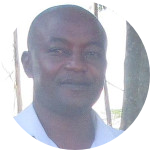About This Project
Lake Manyara National Park, located in northern Tanzania, harbors several mammal species of conservation concern (lion, elephant, leopard, and several small carnivores), yet dense vegetation and their elusive and nocturnal behavior impede effective monitoring. In order to improve the ecological knowledge and to effectively monitor these species, this study will employ camera traps to assess their activity patterns, spatio-temporal distribution and baseline population size estimates.
Ask the Scientists
Join The DiscussionWhat is the context of this research?
Biodiversity monitoring is a pre-requisite for evidence-based conservation, yet traditional methods may fail to detect crucial components of biodiversity. In particular, mammalian carnivores are inactive and elusive during daytime and thus difficult to detect. Moreover, their relative low density, behavioral avoidance of humans and dense vegetation further complicate direct assessments. Camera trapping technology offers opportunities to collect data continually and to assess elusive and nocturnal animals non-invasively and is thus ideal to better understand spatio-temporal distribution and activity patterns of wildlife in Lake Manyara National Park. Using individual identification (based on individual characteristics) it is even possible to estimate population sizes.
What is the significance of this project?
Inadequate direct observability of the target species -and resulting limited understanding of their ecology and population dynamics is unfortunate, because these species provide important ecosystem services, are key tourist attractions and are of high conservation concern. For example, elephants are crucial seed dispersers and their ranging patterns thus strongly affect vegetation dynamics. Beyond providing a wealth of data on the ecology of cryptic species, this assessment will be used as a baseline for continuous population monitoring of species with high conservation concern. In the long-term monitoring, we will work closely with the management of Lake Manyara National Park.
What are the goals of the project?
We will establish a 1km² grid-based camera trap monitoring scheme in Lake Manyara National Park, which will allow us to assess the activity patterns of cryptic wildlife species (e.g. elephant, leopard, lion, small carnivores), and establish a baseline of the spatio-temporal distribution of these species. Using specific coat and facial patterns, we will identify individual animals, and use these data to estimate population sizes of these species. We will use at least ten camera traps (with infrared flash at night) to collect pictures in 100 locations of the park over the course of a year.
Budget
We are asking for funding to buy camera traps (motion triggered cameras that take pictures whenever an animal walks in front of the camera) and to operate the cameras for one year. Cameras will mainly be located in areas of high animal use (game trails, water sources).
Each camera trap costs $ 150 (at least 10 cameras are needed to cover the park, camera locations will be shifted systematically every 2-4 weeks), batteries and memory cards will cost $ 200. In addition, we need to hire armed rangers to safely set up and maintain cameras over the course of the year ($ 300). If we exceed our funding goal, we will invest in additional camera traps to obtain a higher spatial resolution.
Meet the Team
Affiliates
Team Bio
John Kioko and Christian Kiffner work as professors at the Center for Wildlife Management Studies, Tanzania. Since 2011, we have worked jointly on wildlife conservation issues in the Tarangire-Manyara ecosystem. Beyond teaching wildlife ecology and conservation we are active researchers. Our research interests range from animal behavior and population dynamics to human-wildlife conflicts, illegal hunting, road ecology, disease ecology and indigenous knowledge of natural resources.
Christian Kiffner
Since I can remember, I was fascinated by nature, wild animals and spent many hours of my childhood in the woods. I had the opportunity to travel and work in several wild places of the African continent and have worked on wildlife conservation projects in Northern Tanzania for the last 5 years. Being a keen photographer and curious wildlife researcher, the proposed project allows me to perfectly blend these two passions and to share them with our inquisitive and talented students.
Meghan Graham MacLean
I joined the Office of Academic Affairs at The School for Field Studies in the fall of 2014. Previous to my time at SFS, I was an Assistant Professor at Babson College where I taught courses in environmental science and sustainability to Babson's undergraduate business students. Although my teaching at Babson was primarily based on improving undergraduate science literacy, I have quite a varied teaching background. I have taught at a variety of levels, from middle school to graduate school, and on a variety of topics from basic biodiversity/ecology to Remote Sensing and GIS.
My research in biogeography explores urbanization and land cover change, impacts of exotic species, as well as how to monitor changes in our global environment. I have researched everything from proper sampling techniques to the impacts of exotic bee species on native pollinators of agricultural crops. The results of my research inform land owners, planners, and conservation agencies about sustainable development and the effects of biodiversity change. My research on the interaction between anthropogenic and natural landscapes complements the expertise present at SFS. I use my background in research, as well as my teaching experience, to help support and promote the important research and learning being done by the students and faculty of SFS.
For more information, please visit my personal website.
John Kioko
I'm absolutely fascinated by nature and understanding its complexity. I know I share this dream with my students, wildlife conservations and animal lovers. This has led me to be interested in developing research questions and in doing research of value to future conservation. I am in particular interested in mentoring the youth through teaching and research through innovative research tools and approaches. I see this project as a great chance for me to make this happen.
Project Backers
- 61Backers
- 128%Funded
- $2,560Total Donations
- $41.97Average Donation


